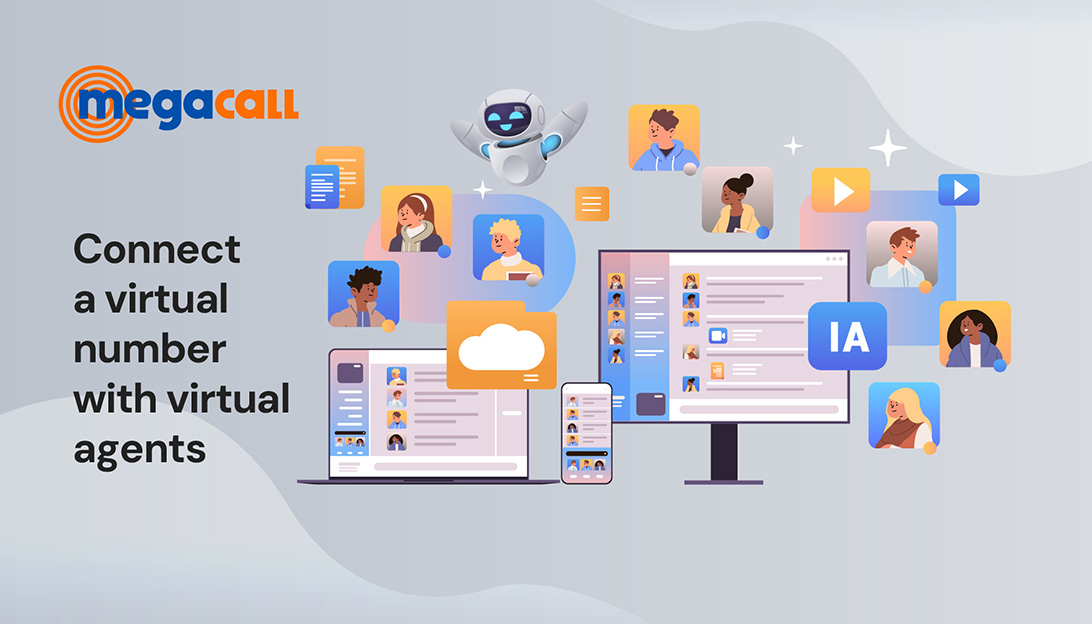- Advantages of implementing a Voip telephone system.
- VoIP telephony makes customer service easier.
- Examples of VoIP telephony used in companies.
- How to adapt a VoIP telephone system in my company.
If you are here, it is because you already know what IP telephony is and you know that it works through the Internet, and that sooner or later it will end up being the best solution for all companies and self-employed people in telephony, since the activity of analog telephone networks is in decline. Well, today’s article we wanted to dedicate to see some examples of how you can adapt VoIp telephony to a business.
So if you have not yet switched to VoIP technology, I don’t know what you are waiting for! The procedure is very simple, and today we will tell you how.
These are the advantages of implementing a VoIP telephone system in your company.
There are still companies that hesitate to take this step towards VoIP telephony, perhaps due to ignorance and lack of information regarding this technology, even though we can find endless information on the subject, but it is often incomplete or confusing. Therefore, we want to keep you informed and update you on the use of VoIP technology, based on its great advantages.
First, we have to highlight that virtual telephony allows you to have virtual phone numbers both national and international, so at the level of growth this will allow you to have a presence in any country, in addition, it will give more confidence to the client and will provide more prestige to the company, since it can be present in several different countries at the same time, giving a good image in the eyes of the client. It is a very scalable technology, this means that as the company grows, extensions can be added as new employees join, easily adapting to the needs of the business. It also has easy integration with work tools, such as CRM and ERP software.
Implementing VoIP telephony means considerable savings in installations, rates and call costs. Calls over the Internet are usually cheaper than traditional calls, especially when it comes to international calls. VoIP technology allows users to achieve the freedom to work from any location and device (mobile, tablet or computer) that traditional systems do not offer, allowing greater flexibility and mobility for users.
Other advantages of this technology are that it has advanced virtual telephony features such as all forwarding and transfer, call analytics and statistics, voice recording and transcription, welcome menu, and more tools that contribute to providing a more personalized and, above all, more professional customer service. Also, all these functions facilitate collaboration and teamwork, achieving more efficient productivity.
VoIP telephony makes customer service easier. Call center and contact center.
With a VoIP telephony system, customer service channels are improved and a better flow of answering calls is obtained. In addition, with the integration of a CRM, you can have access to all customer information and thus provide efficient and personalized customer service. Simultaneous calls can be made, and improving the customer service process, reducing waiting times and the number of missed calls. How is this achieved?
A VoIP telephone service can cover a large volume of calls, and that is why it is perfect for call centers or contact centers. With the configurations of a virtual switchboard, you can ensure that you don’t miss any customer calls, through rules so that incoming calls reach the available agent. In addition, wait times can be reduced with call routing so that customers are answered. And to make it even better, with call recordings, you can perform analytics where you can obtain relevant data, either to improve, for needs that customers are asking for or for performance, for example. Also, with interactive voice response menus, or IVR menus, you can automate many responses to recurring customer questions in a quick way, such as dates and times. This not only improves customer service, it also frees up agents to focus on other queries that require more personalized attention.
Security is also something to consider; data transmission in this sector is very important, and VoIP telephony offers high security both in storage and in the transmissions of sensitive information and data. Companies can be assured that their information will be protected.
Customer service companies are particularly concerned with providing quality service and personalized attention to retain customers and get them to hire the services again. For this reason, VoIP systems offer numerous benefits for this service.
Examples of VoIP telephony use in companies
Some of the sectors that use this service, in addition to contact and call centers include:
- The ease of remote work or virtual offices with VoIP. VoIP telephony systems boost productivity in a remote work environment, not to mention the flexibility of this technology, which allows work to be done efficiently and effectively from anywhere in the world. Employees can connect from any device as long as there is an internet connection.
- Startups and the scalability of VoIP technology. Startups primarily benefit from the fact that VoIP systems are highly scalable, making it easier for small businesses and startups to adapt quickly. For example, a company with a small team of five employees can grow, and as it expands into other territories, it can increase the number of employees as needed. From any location, with a local number, it can easily grow from 5 to 20 employees, thanks to VoIP’s ability to add extensions at a much lower cost.
- Communication in national and international branches. Branches with an implemented VoIP system can improve communication between their offices and various global branches. With VoIP, they can obtain local numbers from any country, improve customer service, create the impression of a greater global presence, and also significantly reduce the cost of international calls, and achieve better team coordination.
- VoIP in the communication management of global hotel chains. For hotels, this technology is very useful as it is not only useful for establishing an extension system between employees and for each department to be connected, but also allows for IP landlines in the rooms. Guests can use these phones to contact reception, the restaurant, laundry service, or others via the welcome menu.
As we can see, with VoIP telephony, there are countless applications and adaptations that can be used, especially if it’s a company where the primary service is customer support.
How to adapt a VoIP telephony system to my business.
Implementing VoIP telephony services with Megacall is super easy. Megacall is one of the most affordable VoIP system providers on the market, with an intuitive and user-friendly interface. With numbers from over 100 countries, its own CRM, and a free virtual switchboard with all its features – call recordings and analytics, call forwarding, voice recognition, conversation statistics, interactive voice response menu,and more – adapting it to your company will only take a few minutes:
- Sign up on the platform, choose a virtual number, and connect your number.
- Configure the virtual switchboard.
- Integrate the CRM (this step is optional, but doing so offers many benefits by centralizing everything).
You only pay from 2 euros for the number fee with an annual subscription, and you’ll have VoIP in your company! It’s that simple. Megacall also offers different plans for companies looking for a bit more.
Now that you know what to do, what are you waiting for to improve communication in your business?





